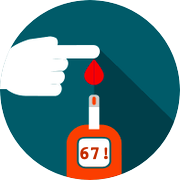| Brian Doyle Our local Guru of EBM, Brian Doyle, hosts a monthly Journal Club for the locals. In the spirit of consolidating knowledge and sharing this with the world, with permission, here is a re-post of one of the articles discussed. For more juicy journals served on a platter, head over to Brian's JC blog: EmergencyMedJc |
Kupperman N, Ghetti S, Schunk J, et al. Clinical Trial of Fluid Infusion Rates for Pediatric Diabetic Ketoacidosis. N Engl J Med 2018;378:2275-87.
Emergency physicians often get criticised for overhydrating children with DKA. “Too much fluids will cause their heads to explode,” as spoken from an annoying bow tie.
But there has never been good quality evidence to prove fluid administration causes cerebral edema. In fact, a study by Glaser etal. in 2001 showed no association between fluids and bad outcomes.
But as there is no definitive RCT, the debate still rages!
Hopefully this clinical trial will put matters to rest.
After 17 years, Dr Nicole Glaser is back! Now teamed up with the PECARN mega-group, they randomised 1255 children with 1389 DKA episodes to one of 4 treatment arms (please see original paper for further details)
- Fast administration of 0.9% normal saline
- Fast administration of 0.45% normal saline
- Slow administration of 0.9% normal saline
- Slow administration of 0.45% normal saline
(Just to give an idea of what is fast vs. slow, a 50 kg child would get an infusion started of 300ml/hour vs. 140ml/hour.)
The primary outcome was a decline in mental status (measured by GCS) during treatment. Secondary outcomes included clinically apparent brain injury during treatment and some measures of memory.
Results?
No difference. Neither the rate of administration nor the sodium chloride content of the IV fluids resulted in bad outcomes.
So the debate is over?
Unfortunately, no.
98% of the children recruited in this study started out at GCS 14-15. We know it is the sickest cohort of DKA that develop bad complications. This study was never going to show a difference. The clear majority were going to get better with any reasonable management... regardless of fluid protocols.
What about the child with a pH of 6.9 and GCS 6? Does the rate of fluid administration matter?
Hmmmmmm....
Unfortunately, an adequately powered RCT of severe DKA will never happen. It is simply not feasible.
Alas, the annoying bow ties will continue...
About The Author
| Dr Brian Doyle is an emergency physician originally from the United States but now very much calls Tasmania his home. Unfortunately, it will now be a bit more difficult to deport him from the country as he passed his Australian citizenship test a few years ago. (He was able to answer that Phar Lap won the Melbourne rather than the Davis Cup). His main interests are mostly the clinical aspects of emergency medicine but also in education, ultrasound and critical appraisal of the literature. He spends much of his time annoying people to help out with conferences. |



 RSS Feed
RSS Feed
